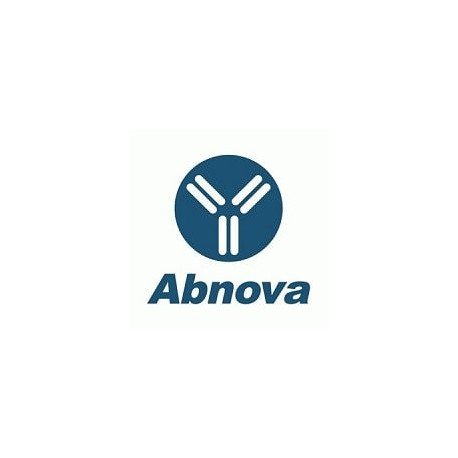Cart 0 Product Products (empty)
No products
To be determined Shipping
0,00 € Total
Prices are tax excluded
Product successfully added to your shopping cart
Quantity
Total
There are 0 items in your cart. There is 1 item in your cart.
Total products (tax excl.)
Total shipping (tax excl.) To be determined
Total (tax excl.)
Data sheet of RFFL polyclonal antibody
| Brand | Abnova |
| Product type | Primary antibodies |
| Reactivity | Bovine,Dog,Human,Mouse,Rat |
| Host species | Rabbit |
| Applications | WB,ELISA,IHC-P |
More info about RFFL polyclonal antibody
| Brand: | Abnova |
| Reference: | PAB11254 |
| Product name: | RFFL polyclonal antibody |
| Product description: | Rabbit polyclonal antibody raised against partial recombinant RFFL. |
| Gene id: | 117584 |
| Gene name: | RFFL |
| Gene alias: | RIFIFYLIN|RNF189|RNF34L |
| Gene description: | ring finger and FYVE-like domain containing 1 |
| Immunogen: | Recombinant protein corresponding to amino acids 1-363 of human RFFL. |
| Protein accession: | NP_476519;Q8WZ73 |
| Form: | Lyophilized |
| Recommend dilutions: | ELISA (1:4000-1:20000) Western Blot (1:500-1:3000) Immunohistochemistry (1:500-1:3000) The optimal working dilution should be determined by the end user. |
| Storage buffer: | Lyophilized from 0.02 M KH2PO4, 150 mM NaCl, pH 7.2 (0.01% sodium azide). |
| Storage instruction: | Store at 4°C. For long term storage store at -20°C. Aliquot to avoid repeated freezing and thawing. |
| Quality control testing: | Antibody Reactive Against Recombinant Protein. |
| Note: | This product contains sodium azide: a POISONOUS AND HAZARDOUS SUBSTANCE which should be handled by trained staff only. |
| Product type: | Primary antibodies |
| Host species: | Rabbit |
| Antigen species / target species: | Human |
| Specificity: | This protein A purified antibody is directed against human RFFL protein. Expect reactivity with isoform 1, 2 and 3 of RFFL. |
| Reactivity: | Bovine,Dog,Human,Mouse,Rat |
| Application image: |  |
| Application image note: | Immunohistochemistry of RFFL polyclonal antibody (Cat # PAB11254) shows strong cytoplasmic and membranous staining of tumor cells in cancerous human liver tissue. Tissue was formalin-fixed and paraffin embedded. Brown color indicates presence of protein, blue color shows cell nuclei. Personal Communication, Kenneth Wester, www.proteinatlas.org, Uppsala, Sweden. |
| Applications: | WB,ELISA,IHC-P |
| Shipping condition: | Dry Ice |
| Publications: | Suppression of caspase-8- and -10-associated RING proteins results in sensitization to death ligands and inhibition of tumor cell growth.McDonald ER 3rd, El-Deiry WS. Proc Natl Acad Sci U S A. 2004 Apr 20;101(16):6170-5. Epub 2004 Apr 6. |


